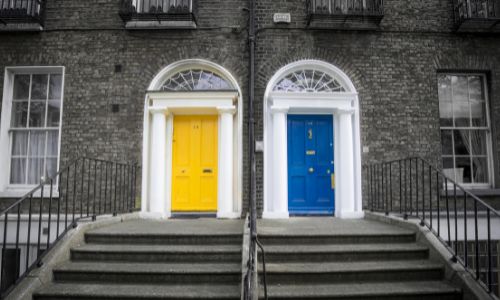Advice when buying new Doors
Advice when buying a new doors
The fact that you have visited this webpage is likely to mean that when it comes to buying a new front, side, or back door for your home, security is a top priority. Sadly, this consideration is not always the case as it is too often assumed that an external door is naturally secure. Why would it not be!
Unfortunately, the marketplace is littered with products where manufacturers declare their product as secure when no independent testing or further assessment has ever taken place. This can lead to expensive mistakes being made by consumers who purchase inferior products unaware of a better choice that could and should have been made.
Remember, look out for the coveted SBD police logo on security products because only SBD member companies can use it.
There is a wealth of crime prevention information on this website, which also contains a list of all products that have been accredited to Police Preferred Specification.
There are SBD member companies throughout the UK whose windows meet our stringent security and performance requirements. Check out our SBD Members page to see if your supplier is one of our members before purchasing your windows.
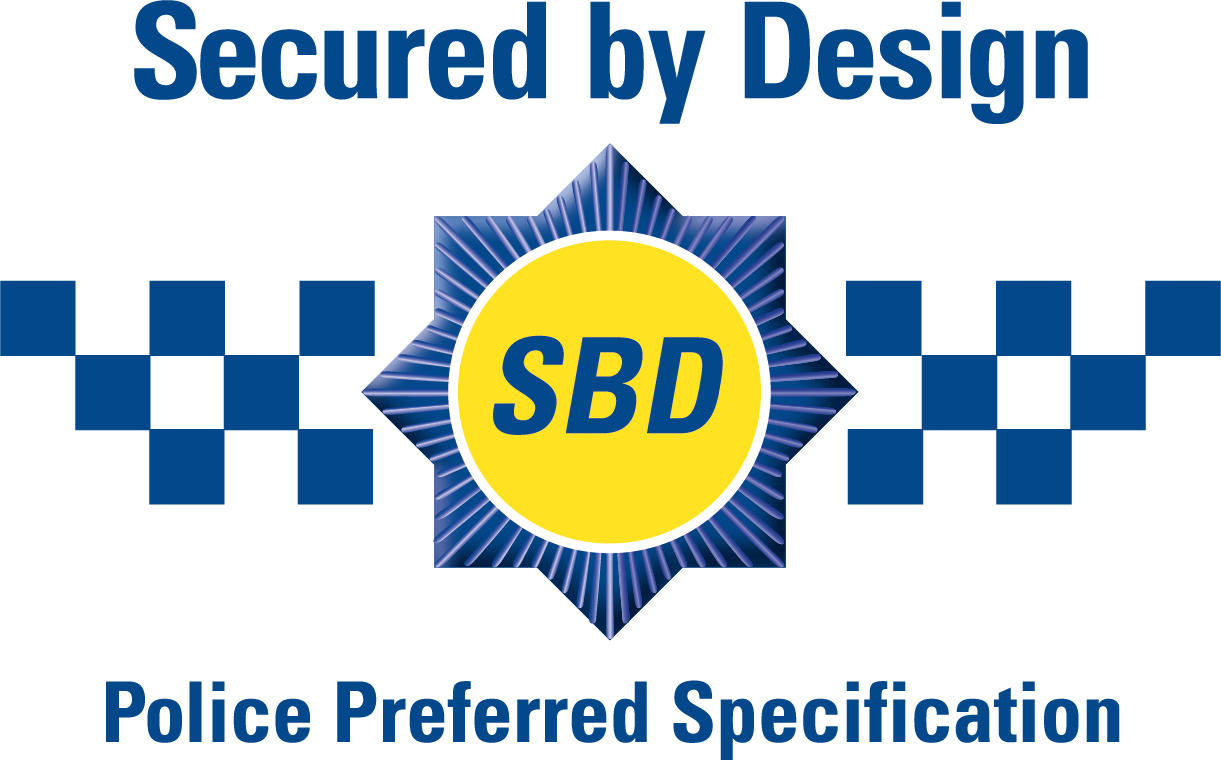
What questions to ask your door supplier
There is so much choice in the marketplace for doors and choosing the colour and what your door is made from will most likely be the easiest choice. Naturally, what suits you and your budget will also play a part in this decision.
The five main types of material that doors are manufactured from are:
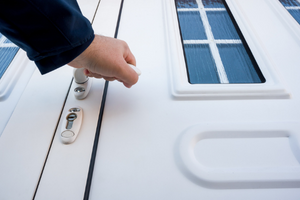
uPVC doors have become commonplace across the UK, popular among homeowners thanks to their price and availability. uPVC doors, when tested and certified are more secure. This is largely thanks to having a highly secure multi-locking mechanism. Locking a uPVC door requires the handle to be lifted when turning the key, putting several locks into place in the frame of the door.
Door manufacturers are aware of their responsibility to taking care of our planet. Many companies also reclaim, recycle and re-use end-of-life UPVC and put it back into our new products, so minimal material ends up as waste in landfill.
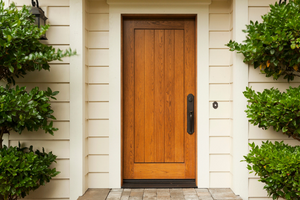
Wooden doors are often the front door of choice for homeowners looking to add a traditional charm to their home. As well as being widely considered the most aesthetically pleasing door, timber is a very secure material, especially modern timber front doors.
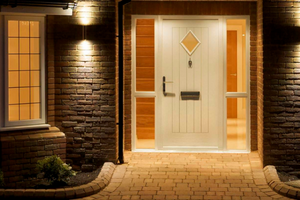
Composite is a particularly good choice of material for front doors. Composite doors benefit from using several materials (insulating foam, wood, glass reinforced plastic, aluminium), all layered to produce a very robust product. A certified composite door not only offers elevated levels of security but are durable and robust.
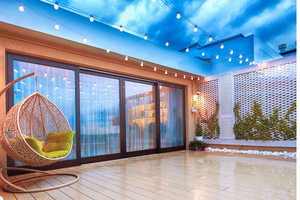
Aluminium doors are extremely popular, especially if you are looking to introduce a patio, sliding or bi-folding feature door into your home. Aluminium is an inherently strong material. Due to aluminium’s strength, there is no need for extra-bulky supporting frames, and it maximises how much glass can be incorporated into a single door, and therefore how much light can enter the home.
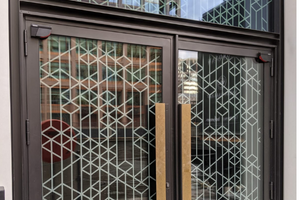
Steel front doors typically include a steel frame and are manufactured by filling a mineral wool, polyurethane or polystyrene foam core between two double skin steel leafs. The steel frame and double skinned leafs ensure the door is secure and won’t warp over time whilst the core adds another layer of protection with the added insulation. A door made from galvanised steel will be long-lasting, require low maintenance, offer high security and, because of their longevity, offer very good value for money.
Why choose SBD?
Knowing that a product is fit for purpose is critical and SBD can help with this. SBD operates an accreditation scheme on behalf of the UK Police Service for products or services that have met recognised security standards. The SBD focus is on the critical factors that combine to deliver a product’s performance - design, use, quality control and the ability to deter or prevent crime – and these products or services are known as being of a ‘Police Preferred Specification’.
Police Preferred Specification ensures that products have been independently tested to a relevant security standard and fully certified by an independent third-party, United Kingdom Accreditation Service (UKAS) certification body, or tested and certified by an approved body such as Sold Secure or Thatcham. In addition, Police Preferred Specification requires regular re-testing and annual inspection of the manufacturing facility to ensure quality and performance are maintained (by a UKAS body). This provides assurance that products have been produced under a controlled manufacturing environment in accordance with the specifier’s aims and minimises misrepresentation of the products by unscrupulous manufacturers/suppliers.
Better quality means these products last longer too, making them more cost effective and leading to greater sustainability in crime prevention.
Much research has been undertaken to look at the effectiveness of doors and windows which have achieved SBD’s Police Preferred Specification. A study of 1520 properties on two Nottingham City Homes estates that had SBD windows installed found that, compared to pre-installation, burglary was reduced by 42% compared to a city wide reduction of 21%.
If you are replacing a broken or defective lock, or looking to improve the security of existing doorsets, a Locksmith registered with the Master Locksmiths Association can specify the best & most secure door lock to use for your type of door.
Always be vigilant - report sightings of suspicious activity in your neighbourhood to the police.
Use the 101 number for passing information, or 999 in an emergency when a crime is taking place.
